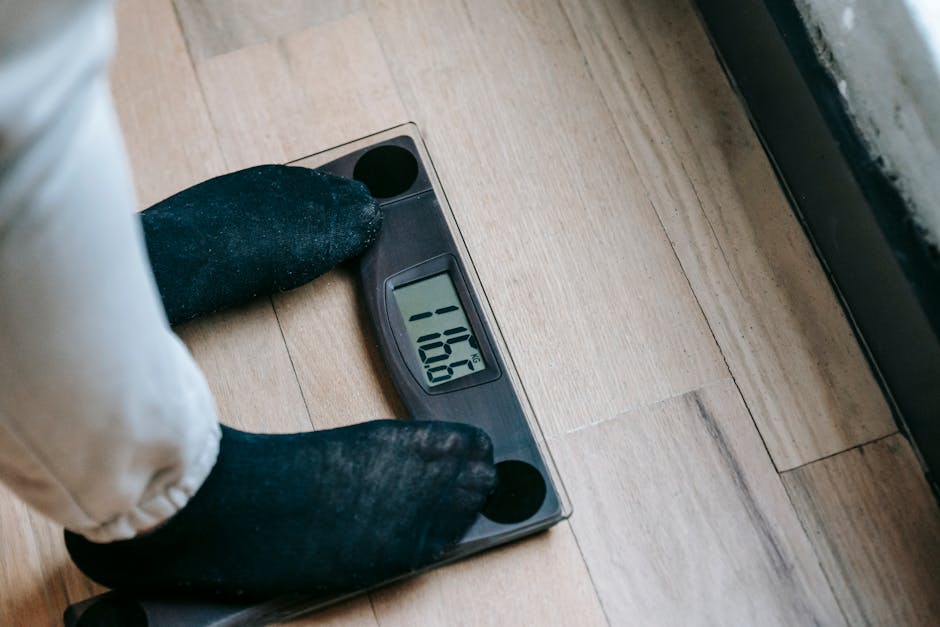Introduction to Weight Loss Myths
Weight loss is a journey filled with ups and downs, and the path is often cluttered with myths that can derail you. These myths are like unwanted travel companions whispering in your ear, making the journey harder than it needs to be. It’s time to set the record straight. Sadly, a lot of what you hear from friends, see on social media, or read on the internet about how to lose weight can be misleading, incorrect, or even harmful. Experts in nutrition and fitness agree that common misconceptions, such as believing that skipping meals leads to weight loss or that carbs are the enemy, can prevent you from reaching your goals. The truth is, effective weight loss is about creating a balanced diet, understanding your body’s needs, and making sustainable lifestyle changes. So, let’s embark on this myth-busting journey together, arm ourselves with knowledge, and make your weight loss voyage smoother and more rewarding.
Myth 1: Extreme Diets Lead to Sustainable Weight Loss
Extreme diets promise quick results, but they rarely lead to sustainable weight loss. The truth is, when you cut calories too drastically, your body thinks it’s starving. This can slow down your metabolism, making it harder to lose weight in the long run. Experts agree that a slow, steady approach to weight loss is more effective. Instead of cutting out entire food groups or severely limiting your calorie intake, focus on eating balanced meals and incorporating regular exercise. This way, you’re more likely to keep the weight off for good. Remember, quick fixes aren’t the answer to long-term weight management.
Expert Insights on Healthy Eating Habits
Experts often emphasize that eating well is not about strict dieting or depriving yourself of all the foods you love. It’s about balance and choosing foods that nourish your body. Here are some key points from nutrition experts on maintaining healthy eating habits: First, listen to your body. Eat when you’re hungry and stop when you’re full. Sounds simple, but many overlook this basic cue. Second, focus on whole foods. That means picking foods close to their natural state—fruits, vegetables, whole grains, nuts, and lean proteins. Processed foods often pack extra sugars and unhealthy fats, so limiting them is a smart move. Third, hydration is crucial. Sometimes, our bodies confuse thirst with hunger. Drinking plenty of water can prevent unnecessary snacking. Lastly, it’s not about cutting out foods completely. If you love chocolate, have a piece, just maybe not the whole bar in one go. Balance is key. Remember, it’s what you eat consistently over time that matters, not the occasional treat.
Myth 2: You Must Exercise Every Day to Lose Weight
Exercise is key to a healthy lifestyle, but the idea that you need to hit the gym every day to shed pounds isn’t accurate. Experts agree, it’s more about the quality of your workout than the quantity. Integrating high-intensity interval training (HIIT) or strength training a few times a week can be more effective than daily, less intense sessions. Plus, rest days are crucial. They allow your body to recover, preventing burnout and injuries. It’s also vital to focus on your diet. What you eat plays a bigger role in weight loss than how often you exercise. Balancing a healthy diet with regular, varied workouts is the smart way to lose weight, not pushing yourself to exercise every single day.
How Weight Loss Experts Recommend Balancing Fitness
Weight loss experts often emphasize a simple formula: eat healthier and move more. But there’s more to it. They say it’s about finding what works for you. First, understand that every workout won’t look the same. Some days, you might lift weights; others, you might take a brisk walk. The key is consistency. Mix things up to keep your body guessing and to prevent boredom. Nutrition plays a big part too. It’s not just about cutting calories but eating the right kind of calories. Focus on whole foods, like fruits, veggies, lean proteins, and whole grains. And hydration—don’t forget that. Water is crucial for metabolism and helping you feel full. Experts also remind us it’s not a one-size-fits-all journey. Listen to your body. If you’re tired, maybe take it easier that day. And most importantly, don’t be too hard on yourself. Progress takes time.
Myth 3: Certain Foods Can Burn Fat Quickly
The idea that some foods can melt away fat quickly is a myth. No food can directly burn fat — it’s not that simple. What happens is some foods can boost your metabolism for a bit or help you feel full longer, so you eat less overall. But the effect is not like flipping a switch to burn fat. Foods often mentioned in this myth include chili peppers, green tea, and coffee. Yes, they have certain compounds that may increase your metabolism slightly or help manage appetite, but expecting them to be fat-burning miracles is asking too much. Weight loss boils down to burning more calories than you consume, not magic foods.
The Truth About Metabolism and Diet from Weight Loss Experts
Many people believe that a slow metabolism is the main reason they can’t lose weight, but experts suggest the situation is more complex. Metabolism does play a role in how our bodies use energy, but it’s not the sole factor in weight management. Here’s the scoop: not everyone’s metabolism works the same, and while genetics can influence metabolism speed, lifestyle choices have a significant impact too. Weight loss experts recommend focusing on sustainable habits rather than quick fixes. Eating a balanced diet rich in fruits, vegetables, lean proteins, and whole grains combined with regular physical activity can boost your metabolism over time. Moreover, staying hydrated and getting enough sleep each night are crucial for supporting your body’s metabolic processes. Simply put, for effective weight loss, a holistic approach is key. It’s not just about cutting calories; it’s about creating a healthier lifestyle that supports your body’s natural rhythms.
Myth 4: Skipping Meals Promotes Faster Weight Loss
Skipping meals might seem like a quick way to shed pounds, but it’s a myth that can backfire. When you skip meals, your body thinks it’s in survival mode, so it slows down your metabolism to save energy. This can make losing weight harder, not easier. Also, you’re more likely to overeat at the next meal because you’re so hungry. Experts agree that eating smaller, balanced meals throughout the day is a better strategy for weight loss. It keeps your metabolism active and prevents those intense hunger pangs that could lead to poor food choices. So, skipping meals? Not the shortcut to weight loss many think it is.
Weight Loss Expert Advice on Meal Frequency and Weight Loss
Many think eating more often boosts your metabolism, leading to weight loss. However, experts say it’s not how often you eat, but what and how much you eat that truly matters. The key is balance and nutrition. Skipping meals can make you overly hungry, leading to poor food choices later on. Instead of counting meals, focus on a balanced diet rich in fruits, vegetables, lean proteins, and whole grains. Whether you eat three bigger meals or five smaller ones doesn’t significantly impact weight loss. Listen to your body’s hunger signals and feed it nutritious food when it asks for it.
Conclusion: Summarizing Expert Opinions on Weight Loss Myths
Wrapping this up, weight loss is often shrouded in myths that can sidetrack even the most dedicated. Experts emphasize the importance of a balanced diet, exercise, and a sustainable approach over quick fixes and fads. They debunk the myth that extreme diets lead to lasting weight loss, pointing out that gradual changes are more effective and safer in the long run. Exercise is highlighted as crucial, not just for shedding pounds but for overall health. The idea that specific foods can dramatically impact weight loss is also challenged; instead, a well-rounded diet is key. Ultimately, the path to weight loss is personal and requires patience, persistence, and a focus on health rather than the scale alone. Remember, if it sounds too good to be true, it probably is. Trust science and expert advice, not just what’s trending.




